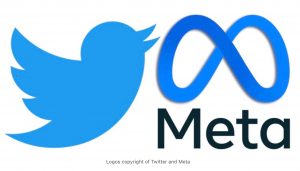What’s the scoop on Meta? Rumor has it, this tech giant is making a comeback, riding the wave of virtual reality’s rising popularity in the industry. What’s more, Apple just dropped a bombshell with their “Vision Pro,” a new augmented reality headset that could give Meta the boost it needs. But what is more important are the side projects that Meta appears to be working on. Despite the excitement of the new interest on virtual reality, it appears that Meta is not dispatching the opportunity of jumping into older business models like the classic social media platforms. This month, Chris Crox, a top executive at Meta, dropped some intriguing hints about the company’s latest projects, and we must say, they have an oddly familiar feel. In a series of pictures, Crox showcased a sneak peek of their upcoming venture, and believe it or not, some media outlets are already drawing comparisons to Twitter.
Dubbed “Project 92,” this endeavor aims to be anything but a Twitter copycat. In fact, it claims to be the complete opposite or at the very least, something refreshingly different. The executive himself declared that this is Meta’s response to Twitter, and they have big plans to introduce enhanced features that will surpass the capabilities of the iconic blue bird. While it is currently premature to engage in speculation, as the project does not yet have a release date, rumors have surfaced suggesting that Meta intends to test the project with notable figures such as Oprah Winfrey or even the Dalai Lama, rather than typical social media users. In response to this, Elon Musk wasted no time in providing his own reaction. In light of these allegations, Musk simply replied, “zuck my tongue.” It appears that he does not feel particularly threatened by a potential competitor. And why should he? Well, in fact there might be a couple of reasons.

It is widely known that users have not been pleased with Musk’s prominent influence on Twitter and the way the platform operates. Many of the controversial changes and decisions that have raised concerns within Twitter have been attributed to Musk’s remarks or the perception that he has significant control over the platform and its fluctuating moods. With this new project, Meta aims to establish a sense of responsibility, creating a platform that is not reliant on the CEO’s daily mood swings.
While it may be premature to draw definitive conclusions, the fact that names like Oprah and the Dalai Lama are associated with the platform, even in its early stages, indicates the image that Meta is striving for. It appears that Meta intends to develop a social media platform that is dependable, serious, and trustworthy. However, users are hoping that the network will also incorporate virtual reality features that truly set it apart. Thus far, based on the pictures shared by Crox, there is no concrete evidence of the innovative approach that users are anticipating, but there is still time until the release, so anything is possible.
And if we take a moment to consider it, the fact that Meta is entering a platform that could potentially rival Twitter, while already having Instagram as its flagship, is something to be cautious about. Some online bloggers are suggesting certain advantages that could arise from Meta’s control over both image/video-based platforms and microblogging. They argue that this could result in a unified account experience and potentially spell the end of Twitter altogether. However, we have previously speculated with similar predictions, citing platforms like Mastodon, yet Twitter remains standing. Is the blue bird simply too big to fail? If Meta successfully executes the development of Project 92, it might not be the case. What would you think are the features that this new project needs to take on if it wants a chance to outbank Musk for good and for all? Will the new features, branding, and connections with Instagram, Facebook and potentially WhatsApp be enough to break the strong network externality that has been sustaining Twitter even under the control of an erratic Musk?

